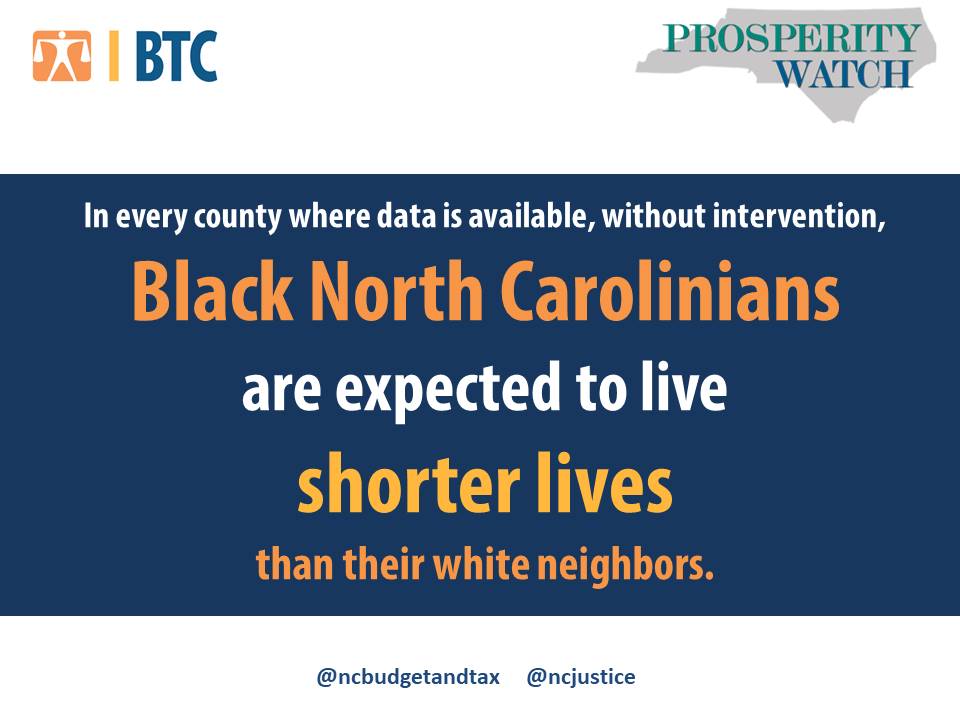
Many of the state-wide numbers seem promising. Across the state, the unemployment rate has dropped, and there are 400,000 more jobs today than there were in 2007. But the state’s population has grown faster than jobs and employment levels remain lower than before the Recession, while measures of hardship and well-being fall short.
In Brunswick County, for example, there are more than 3,400 jobless workers while only 963 job opportunities. The research also shows that those who are able to find work face stagnant wages. The median wage since the beginning of the recovery has actually fallen by 15 cents across the state. In many counties, the typical hourly wage has actually fallen by more than a dollar an hour since 2009.
The labor market is only one aspect of our state’s well-being. Other indicators expose wide disparities across counties. For example, there is a full 8.5 year difference in the average life expectancy of someone who lives in Chatham County versus Richmond County. More disturbingly, in every county where data is available, without intervention, Black North Carolinians are expected to live shorter lives than their white neighbors.
Another indicator to analyze at the county level is the affordability of housing. In Watauga County, where wages have fallen by 45 cents since 2009, more than 71 percent of renters paid more than 30 percent of their income in rent. In Graham County however, where wages have grown by $1.05 since 2009, 25 percent of renters find rent unaffordable.
Tax cuts from 2013 have meant that the ability of counties to provide for their residents depends heavily upon each counties own wealth and resources. Far too many North Carolinians, who pay taxes and participate in the economy, do not have access to high quality health care, affordable housing, living wages, and other critical resources. State-level investments can go a long way to achieving greater equity in the outcomes and access for communities across the state but it requires having a tax code that can match that commitment.
 Justice Circle
Justice Circle 